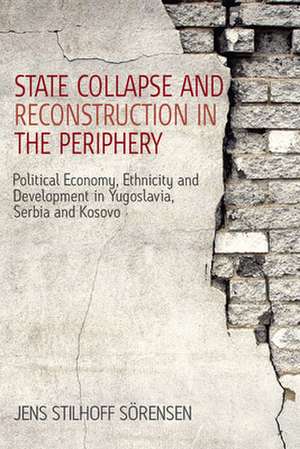State Collapse and Reconstruction in the Periphery
Autor Jens Stilhoff Sorensenen Limba Engleză Paperback – 30 apr 2019
Preț: 264.05 lei
Nou
Puncte Express: 396
Preț estimativ în valută:
50.53€ • 54.87$ • 42.45£
50.53€ • 54.87$ • 42.45£
Carte tipărită la comandă
Livrare economică 23 aprilie-07 mai
Preluare comenzi: 021 569.72.76
Specificații
ISBN-13: 9781789204902
ISBN-10: 1789204909
Pagini: 334
Dimensiuni: 152 x 229 x 19 mm
Greutate: 0.45 kg
Editura: BERGHAHN BOOKS
ISBN-10: 1789204909
Pagini: 334
Dimensiuni: 152 x 229 x 19 mm
Greutate: 0.45 kg
Editura: BERGHAHN BOOKS
Descriere
In the 1990s, Yugoslavia, which had once been a role model for development, became a symbol for state collapse, external intervention and post-war reconstruction. Today the region has two international protectorates, contested states and borders, severe ethnic polarization and minority concerns.
